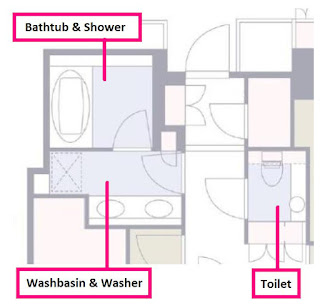Is it possible to let out the property except when I am staying in Japan?
Yes, it's possible.
For example, if you want to stay in Japan after one year, you can rent the property on a non-renewable one year lease first.
However, it's difficult to find a tenant for a non-renewable lease and you may need to lower the rent. It wouldn't make good return.
Therefore we recommend that you do not let out the property for your stay.
Japan is an earthquake-prone country.
How to control the risk for the property investment?
Due to high frequency of earthquakes, the building regulations related to structures are quite strict in Japan, especially since 1981.
If you want to mitigate the risk, it is recommended to choose properties which permitted to be built after 1981.
Also, you can insure your property against earthquakes.
I'd like to buy a property to live in.
How long will it take to move in?
It depends on the current status of the property.
If it is vacant, you can move in after signing the sales contract and paying the remainder price.
In cases where it is occupied by the seller, it may take about three months after signing.
How do real-estate brokerages search properties for sale?
We search properties through the nation-wide real estate database system called REINS, which stands for Real Estate Information Network System.
All real-estate brokerages in Japan have access to REINS and it is updated everyday.
Therefore, we can find properties meet which your requirements.
Conversely, it enables you to find buyers all over Japan when you sell properties.
I'm too busy to visit Japan to sign a sales contract.
If the situation permits, it is possible for you to sign a sales contract in Qatar.
Please consult with us about your situation.
What are 'management fees' and 'repairing funds' of apartments?
Management fee is used to maintain the quality of the shared elements of an apartment, such as regular cleaning of common use spaces and maintenance of lifts.
Repairing fund is reserved for future major repair of the shared elements such as external walls and a roof which take place once every 10 to 20 years.
It is collected every month to prevent it from becoming a large expenditure.
If you have any questions regarding real estate in Japan, please leave a comment or contact us.


















